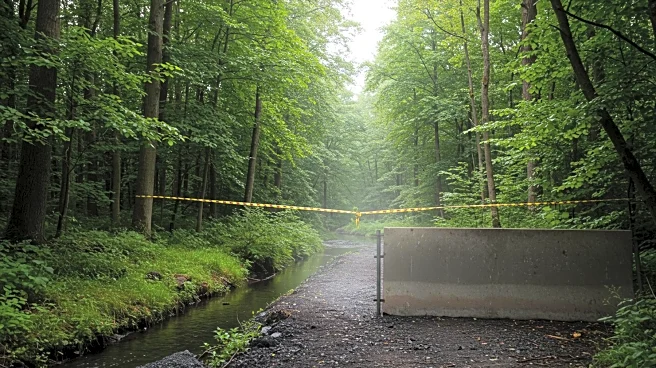What's Happening?
Climate Liberation Aotearoa activists have ended a 23-day protest against Bathurst Resources' coal mining plans on the Denniston Plateau. The protest involved activists Rachel Andrews and Tāmati Taptiklis occupying a coal bucket suspended 80 meters high at the Stockton mine. The activists were taken into custody after descending from the ropeway. The protest aimed to draw attention to Bathurst Resources' mining activities, which activists claim are environmentally damaging. The company has been accused of using hostile tactics to remove protesters, highlighting tensions between environmental groups and the coal industry.
Why It's Important?
This protest underscores the ongoing conflict between environmental activists and the coal industry, reflecting broader debates about fossil fuel extraction and climate change. The activists' actions bring attention to the environmental impact of coal mining, which is a significant contributor to greenhouse gas emissions. The protest also highlights the challenges faced by activists in advocating for sustainable practices and the resistance from industries reliant on fossil fuels. This confrontation could influence public opinion and policy discussions regarding energy production and environmental protection.
What's Next?
The conclusion of the protest may lead to further legal actions or negotiations between Bathurst Resources and environmental groups. Activists are likely to continue their efforts to oppose coal mining and advocate for renewable energy alternatives. The company may face increased scrutiny and pressure to adopt more sustainable practices. The outcome of this conflict could impact future mining projects and regulatory policies, potentially leading to stricter environmental standards and increased support for clean energy initiatives.
Beyond the Headlines
The protest highlights ethical considerations surrounding resource extraction and the balance between economic interests and environmental stewardship. It raises questions about corporate responsibility and the role of activism in shaping public policy. The event may contribute to a broader cultural shift towards prioritizing environmental sustainability and challenging traditional energy paradigms.











